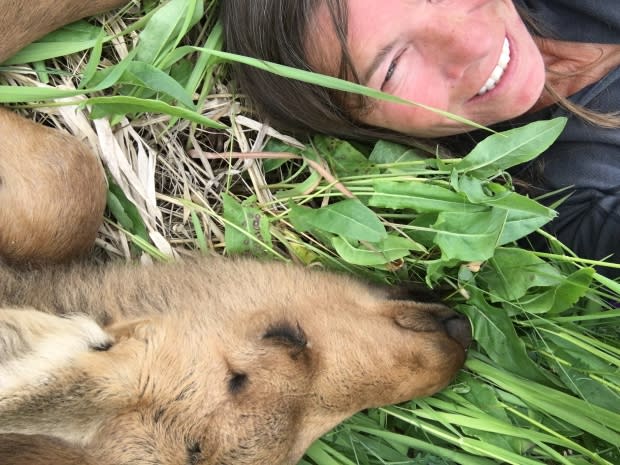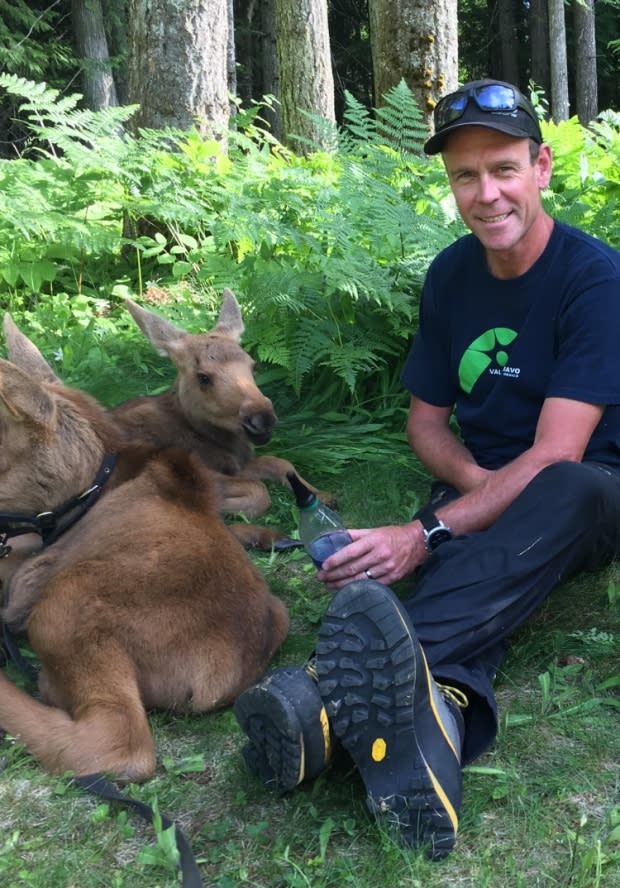Orphaned moose calves recovering after Revelstoke rescue
After finding themselves motherless and unable to fend for themselves in the wild, the story of two young moose calves could have had a sad ending. But because they met Lee-Ann Kramer, they have a chance to thrive.
The two calves — since named Chocolate and Clover — were initially nowhere to be seen in early June when Kramer's boss, Chris Delworth, tracked blood on the road near his workplace south of Revelstoke, B.C., and found an injured mother moose.
Its leg was broken, and it had to be put down.
Nine days later, Kramer and her family were driving through the same area when she saw two small moose on the road.
"At first I thought they were deer, but they looked a lot different," she recalled.

She got out of her truck and called to them. Much to her surprise, that didn't scare them away. In fact, one of them started walking toward her. Her family surrounded the curious calf and they were able to pick it up and put it in their truck.
"It didn't struggle and it seemed really calm," Kramer said. "I think it was probably tired."
The other one, however, took off.

A few days later, someone else in the area spotted another young moose, and because Kramer and Delworth's story had made its way through the community, they figured it was the other calf.
The calf was eventually tracked down to an island in the Montana Slough, part of the Columbia River. Delworth swam out to retrieve the moose while someone else followed in a canoe, and they managed to load it onto the vessel.
Because Kramer had been caring for the first calf, she brought the second one home, where she has 10 acres for them to roam, so the siblings could be reunited.

She contacted a local veterinarian to find out how to feed moose calves, and began giving them goat's milk. But the first one also enjoyed eating clover, which became inspiration for its name. The second was named Chocolate, as in chocolate mousse.
The two moose spent five days on Kramer's acreage before a volunteer from a Golden, B.C., sanctuary could pick them up on Friday morning.
Both calves doing well
Wendy Chambers, who runs the Golden sanctuary in affiliation with the Northern Lights Wildlife Society in Smithers, B.C., told CBC that the calves are now in her care and are doing well.
"They're just sleeping it off," she said. "It's always very stressful for animals when they're travelling."
They have to be fed every couple of hours, and they are currently residing in a stable-type area to keep them safe from predators. Chambers estimates they're four to five weeks old.
According to Chambers, it's likely the moose will be released back into the wild in the fall. In the meantime, she is limiting the amount of contact they have with humans so that they can integrate back into the wild easily and safely.


